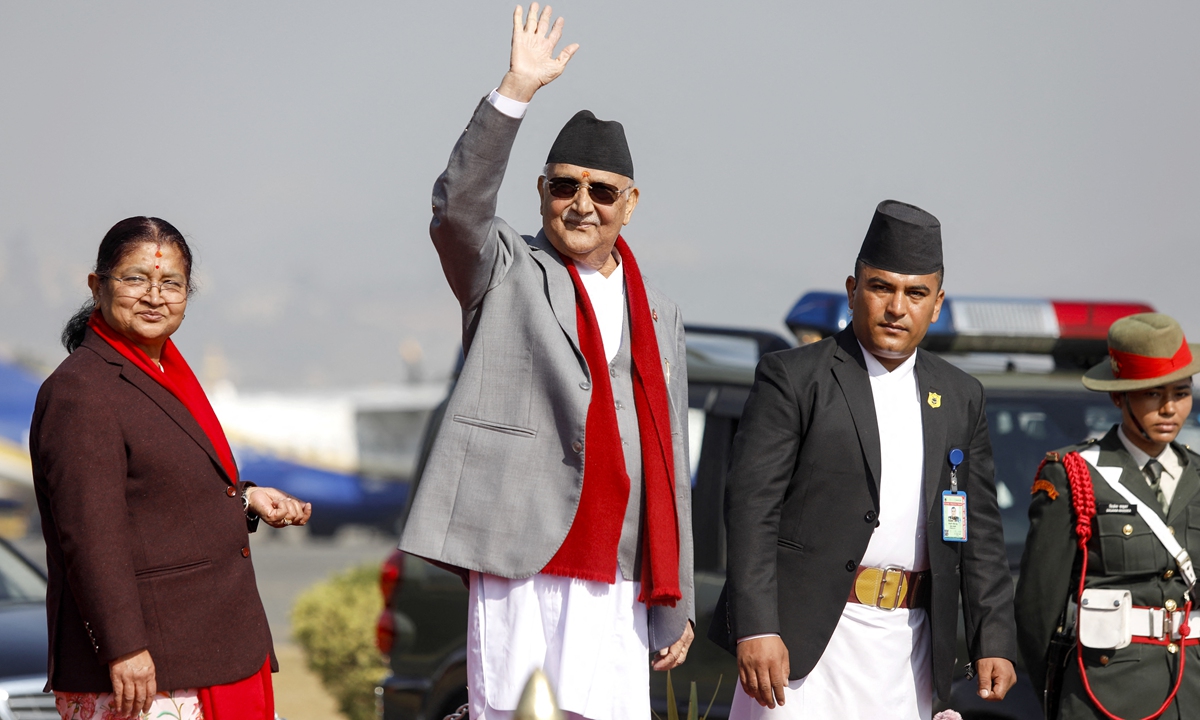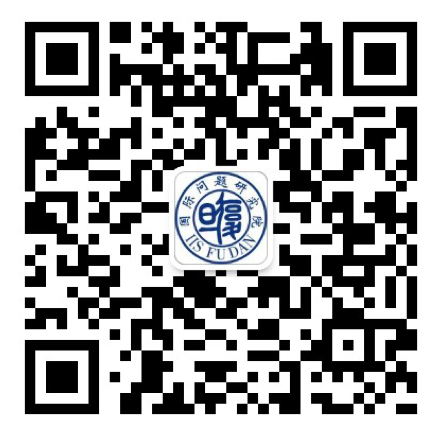
Prime Minister of Nepal KP Sharma Oli waves alongside his wife Radhika Shakya before his departure, at the Tribhuvan International airport in Kathmandu on December 2, 2024. Photo: AFP
Prime Minister of Nepal KP Sharma Oli has arrived in Beijing on a four-day official visit on Monday, the Kathmandu Post reported. The tradition-breaking visit has drawn much attention from Indian media outlets, as the Nepali leader would usually visit India first after taking office.Prime Minister Oli has visited China twice as Nepal's Prime Minister and made important contributions to advancing the growth of China-Nepal relations. During his visit, President Xi Jinping will meet with him, and Premier Li Qiang and Chairman of the Standing Committee of the National People's Congress Zhao Leji will have talks and meet with him respectively, said Chinese Foreign Ministry spokesperson Mao Ning on Friday.
The two countries' leaders will have in-depth exchanges of views on deepening our traditional friendship, expanding Belt and Road cooperation and exchanges and cooperation in various fields, as well as international and regional issues of mutual interest, Mao said.
China stands ready to work with Nepal through Prime Minister Oli's visit to enhance strategic mutual trust, expand practical cooperation, deepen high-quality Belt and Road cooperation and strive for new progress in China-Nepal strategic partnership of cooperation, Mao said.
The China Council for the Promotion of International Trade (CCPIT) also posted a release on Monday, stating that during Oli's visit in China, a high-level economic and trade event between China and Nepal will be held in Beijing on December 4.
In recent years, driven by the Belt and Road Initiative, the relations between the two countries have experienced historic development, with increasingly close exchanges in various fields such as trade, society, culture, and education, according to the release.
Nepal has become a highly attractive investment destination in the region neighboring China, the CCPIT release reads.
According to Kathmandu Post, Oli is also scheduled to deliver a speech at Peking University as well address the Nepal-China Business Forum.
Indian media has been closely following Oli's China visit. Calling Oli a pro-China leader, India's media outlets Hindustan Times noted that Oli broke with the usual practice of Nepali prime ministers making India their first destination in the neighborhood after assuming charge, amid media reports that he did not get an invitation from New Delhi.
In another report by the Hindu, the headline reads Oli on a BRI tightrope as he heads to China with domestic politics and geopolitics at stake.
The Indian media's hype over Oli's China visit is essentially a criticism of the prime minister, questioning his close ties to China and Nepal's participation in the Belt and Road Initiative, Lin Minwang, a deputy director of the Center for South Asian Studies at Fudan University, told the Global Times on Monday.
Oli, during his previous tenure, felt the tight control that India exerted over Nepal. In 2015, India imposed sanctions on Nepal, including cutting off oil and gas supplies, which prompted Oli's visit to China in March 2016, Lin told the Global Times.
Oli's choice to make China his first visit destination after returning to the post of Prime Minister is not unexpected, but rather a reflection of the policy choice of an increasing number of South Asian countries, Lin stressed.
Oli's 78-member delegation includes Foreign Minister Arzu Rana Deuba, Prime Minister's Chief Adviser Bishnu Prasad Rimal, Economic and Development Adviser Yuba Raj Khatiwada, members of parliament, senior government officials, private sector representatives, and media personnel, the Kathmandu Post said.






